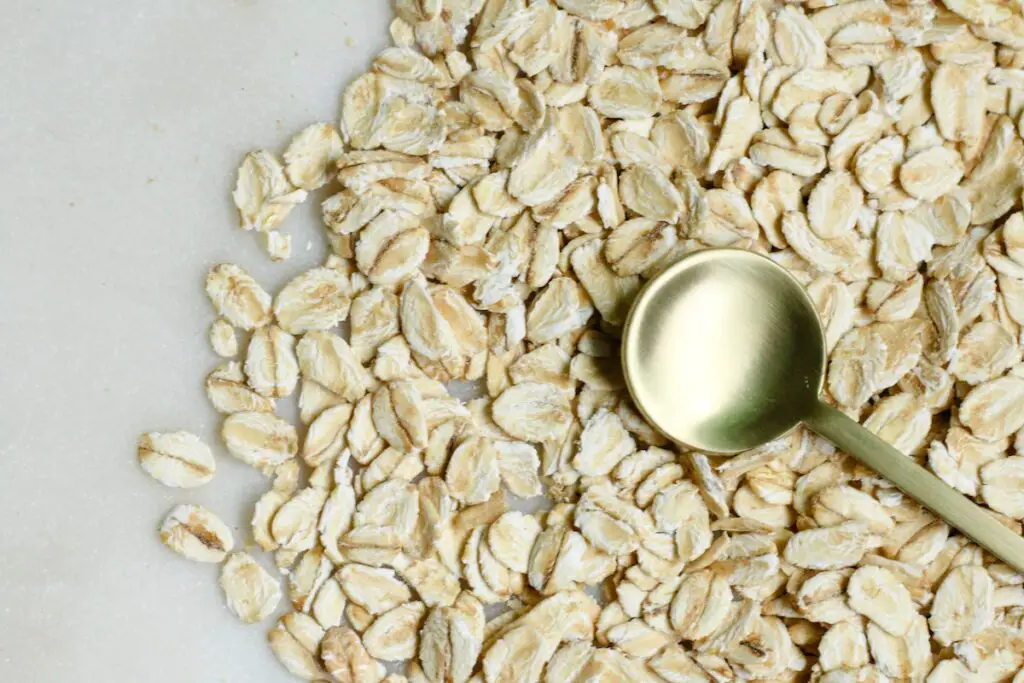Do Oats Come From Wheat: What Makes Oats a Unique Grain?
Norah Clark
Do oats come from wheat? No, they are a distant cousin. They actually originate from the Avena Sativa plant, which is a variety made of cereal grains. Raw oats don’t contain gluten, whereas wheat does.
If you’re like me, you probably wonder where your food originates from. Like that box of oatmeal that you ate for breakfast.
Oats are as well-known as rice in the world, yet we don’t know how they are grown, processed, or even where they originate from. This is a common query, particularly because of the rising prevalence of gluten intolerance.
In this article, I’ll discuss the specifics of oats what they are, where they’re from, and why they differ from or are like wheat.
There are numerous advantages of adding oats into your diet as well. Learn how to enjoy oats.
Do Oats Come From Wheat?
Oats are the seeds of the Avena Sativa plant, a kind of grass specifically cultivated for cereal grain seeds. Fields of oats look like fields of wheat or barley.
If they are fully mature enough and ready to harvest, the seeds, protected by an outer shell, are collected. Within this husk are the germ and bran (the seeds themselves) and the oatmeal below these layers.
The hull is unpalatable and is removed from all kinds of oats sold commercially. Whole grain oats include traditional, rolled, and steel-cut and rolled oats, which also contain bran and a germ.
The various kinds of oats are cooked or flattened to various levels to affect the cooking time. There are many kinds of oat flour. However, they have the outer layer removed.
What Is The Difference Between Oats And Wheat?
There are a variety of varieties of wheat, which is a form of grass that has seeds similar to those of oats. The most well-known variety comes from the Triticum family, particularly Triticum Aestivum, or common wheat.
Oats are gluten-free, in contrast to wheat. Oats contain a protein called Avenin which is similar to wheat gluten. However, it’s not the exact same.
Raw oats are usually considered safe for those with allergies or intolerances to gluten. If you suffer from a gluten allergy, it’s important to look over the label of the particular product you purchase. However, it doesn’t mean they’re processed or packaged in a facility that is free of gluten.
I recommend Bob's Red Mill as my top pick for certified, gluten-free oats. The steel-cut oats from their brand are ideal for making a quick breakfast using a convenient Oatmeal cooker.
Benefits of Oats
When you think of oatmeal, then you’re probably thinking of an oat-based breakfast that is among the top rated hot breakfasts ever: oatmeal, or according to some, porridge.
Oats are a great source of protein and is rapidly becoming a popular alternative to various whole-grain alternatives.
If you’re trying to avoid wheat or rice, oats can be used in your dinner or lunch exactly the same way you would breakfast.
Oats can be used to do more than provide you with a filling meal. If you’ve ever purchased any skin or hair products, you might have seen some have oatmeal or oat milk in the ingredients. Oats can help moisturize and strengthen the skin.

Nutritional Benefits of Oats
Fiber and protein are both well-known for their ability to help you feel fuller for longer. This will help lower your daily caloric intake and reduce hunger cravings during mealtimes.
It’s not difficult to understand why so many people rely on oats in order to get to their weight-loss goals.
The fiber found in oats helps in managing cholesterol levels, lowering blood pressure, and enhancing digestion.
Oats also contain a range of minerals and vitamins, which work in tandem to ensure your body is in good health.
Wheat and oats are similar in terms of their nutritional profile however, oats stand superior in virtually every aspect except for the fact they are slightly higher in calories.
This drawback is outweighed by a significant increase in fiber, healthful fats, and protein levels.
Both grains are excellent for containing B Vitamins however oats have slightly more of the vitamins that are the most difficult to obtain from your daily diet.
Wheat is rich in B2 as well as B6 however, these are available more frequently in other food items, making it easier to meet the recommended daily intake.
Is Oat Milk Gluten Free?
Oat milk is made primarily of oats that are raw, and naturally gluten-free. This does not ensure that all oat milk is gluten-free.
Different brands will have different flavors and additives that may not be appropriate for people who are gluten-intolerant.
The equipment and facility have to be gluten-free certified for the product to be safe for people suffering from extreme allergies.
The best-tasting certified, gluten-free oat milk is produced by Oatly. It’s perfectly balanced and was explicitly designed for baristas who use it as one of the best substitutes for milk in coffee.
What Do Oats Look Like?
The oat plant, Avena Sativa, is an oat-like grass that grows in fields like wheat. When the plant matures, it produces feathery seed fronds similar to wheat.
While harvesting, the oats are still in their husks which is a protective layer of paper. Inside, the grains look like yellow-tan rice and have sharp ends.
The oats you purchase in a shop have been crushed, cut, cut, or rolled. Steel-cut oats and crushed oats are small pieces that may be irregular, even to the point that they are partially powdered based on the kind of oats.
Oats that have been rolled have been flattened and formed small discs of an off-white color. The thickness of the oats is dependent on the kind of oats that you purchase, and instant oats are thinner.
Do Oats Contain Protein?
Oats are a good source of protein and are considered an excellent plant-based protein source which is why they are particularly loved by vegetarians and vegans.
Oats contain a higher protein content than other grains offering nearly 17 grams of protein in a 100-gram portion.
These 17 grams could be as much as 35 percent of the daily protein intake for some individuals, based on the specifics of each individual.
The primary type of protein found in oats is quite similar to the proteins that are found in legumes. They’re not considered to be a complete protein, however, they possess an amino acid profile that is more diverse in composition than any other grain.
Does Wheat Germ Go Bad?
Wheat germ is prone to decay and becomes rancid if it’s not stored properly.
The most crucial aspect of the safety of the wheat germ is to shield it from temperature and humidity changes that can cause condensation around the germ.
To store the germ, put it in an air-tight container made of steel or glass. It is possible to use an airtight bag if that is what you prefer, however, something more solid will extend the lifespan of the wheat germ.
Once it’s inside an airtight container, keep it in a dry, cool place away from direct sunlight or in your refrigerator. This will ensure it will last about a year.
Wheat germ can be frozen to increase the duration of its life.
Frequently Asked Questions
Are oats considered wheat?
No, oats are not considered wheat. Oats are a distinct grain that belongs to this family of cereals.
Are oats OK for wheat allergy?
Oats are generally considered safe for people with wheat allergies, but cross-contamination is possible. It’s important to make sure that the oats are labeled as “gluten-free” if you have a wheat allergy, as oats can be processed in the same facilities as wheat and other gluten-containing grains.
Are oats healthier than wheat?
Oats and wheat are both healthy grains, but they have different nutritional profiles. Oats are particularly rich in fiber, which can help with digestion and cholesterol management, while wheat is a good source of essential vitamins and minerals. The choice between the two grains ultimately depends on individual dietary needs and preferences.











1 comment
Am confused with: wheat and oats are comparable, they have adv over wheat. Is oat or wheat better?